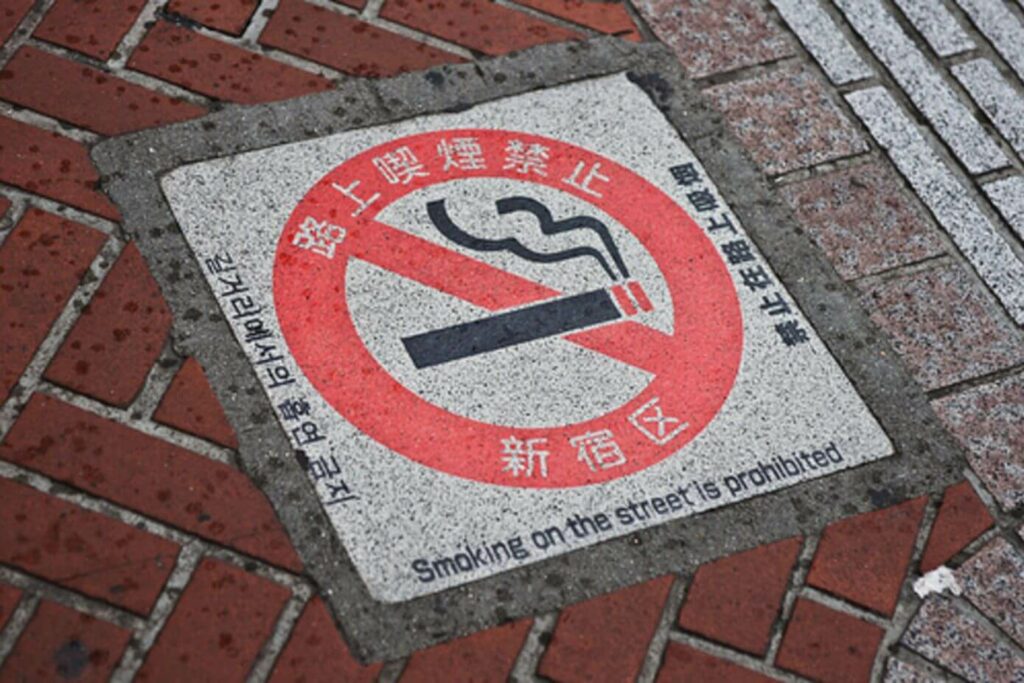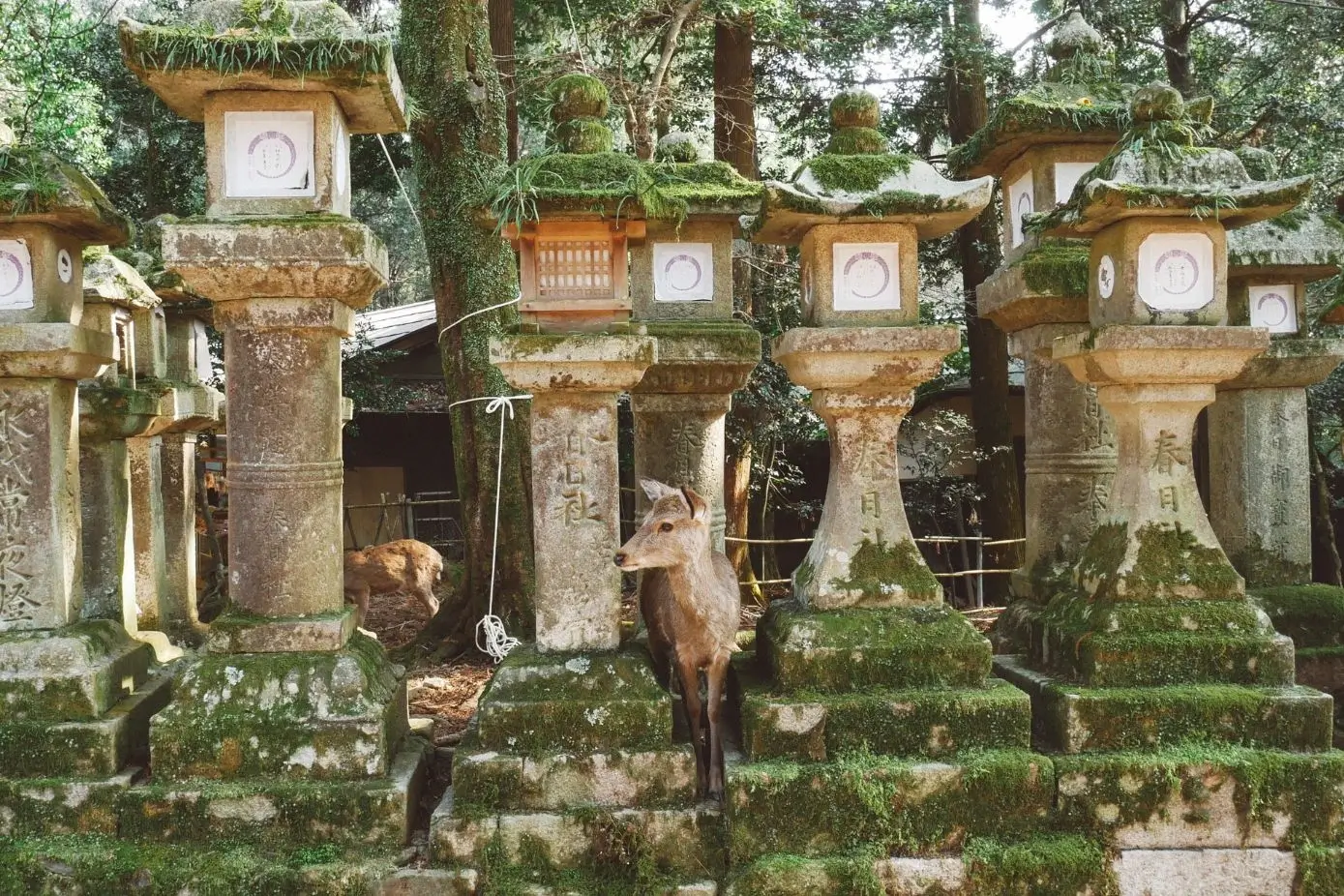Every country has its own cultural rules and habits and Japan is no different. Travelers going to Japan are not expected to be familiar with Japanese etiquette but it’s always a good thing to be aware of the hidden cultural rules of the country. Some of them might surprise you but here are some of the things not to do in Japan:
- Don’t wear shoes indoors
- Don’t cut in line
- Don’t play with your chopsticks
- Don’t leave a tip
- Don’t get in onsen without showering first
- Don’t be loud in transports
- Don’t blow your nose in public
- Don’t eat on the go
- Don’t smoke on the street
- Don’t expect people to speak English
Don’t wear shoes indoors
When visiting a Japanese home, you have to remove your shoes directly at the entrance or genkan and replace them with indoors slippers. If ever those aren’t provided, it is ok entering with socks.
This no-shoes policy is not only applied at home. You probably won’t visit any school or workplace if you’re just coming to visit the country but there is a better chance that you will eat to a Japanese style restaurant or izakaya.
Most of these restaurants provide a shoe locker at the entrance to store your shoes before entering the dining area (especially if the restaurant has tatami mat flooring).
Other places like traditional Japanese hotels or ryokan, some public spaces like temples and shrines, and hospitals also apply the no-shoes rule.
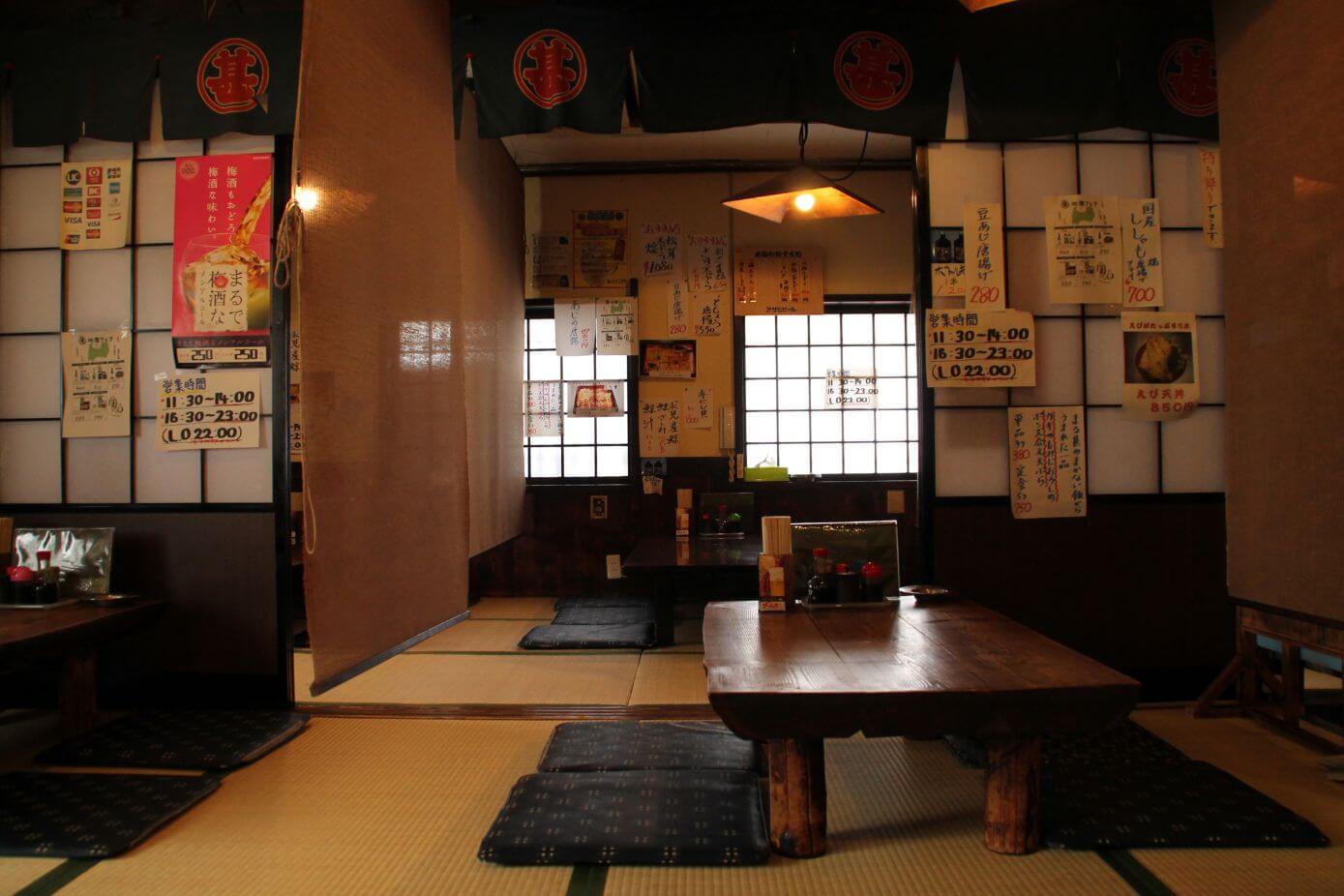
Don’t cut in line
Whether you’re waiting for eating in a restaurant, riding a Disneyland rollercoaster or simply the bus or the train, you can expect to find single-file lines. Japanese people are very organized.
For example, on train stations platforms, there are always lines painted on the floor indicating where to stand and wait for your train. Even though there are many people, they wait in line orderly.
And finally, this should be a no-brainer, but remember to always let the people exit before boarding.
Don’t play with your chopsticks
The first, and maybe the most important rule when it comes to chopsticks is to never stick them vertically in your rice bowl.
It symbolizes death and can be related to a funeral ritual. It is also a symbol of bad luck so definitely something to avoid when eating with chopsticks.
When you want to pass food to another person with chopsticks, don’t give them directly through their chopsticks but prefer transferring the food to a plate.
Also don’t rub your chopsticks together. Many people think this habit comes from Japan but no, it is perceived as rude.
On the other side, don’t be surprised when people make slurping noises while eating soba, udon or ramen noodles because it is a part of Japanese culture.
The Japanese will also be impressed if you’re comfortable using chopsticks.
Don’t leave a tip
Japan does not have a tipping culture. If you leave a tip at a table and walk out of a restaurant, and the waiter will surely run after you to return your forgotten change.
Japanese people believe that good service is a common thing and tipping is sometimes considered as rude and even insulting in some situations.
Just say ‘thank you’ or gochiso sama deshita (‘Thank you for the feast’), it is enough to thank your server.
Don’t get in onsen without showering first
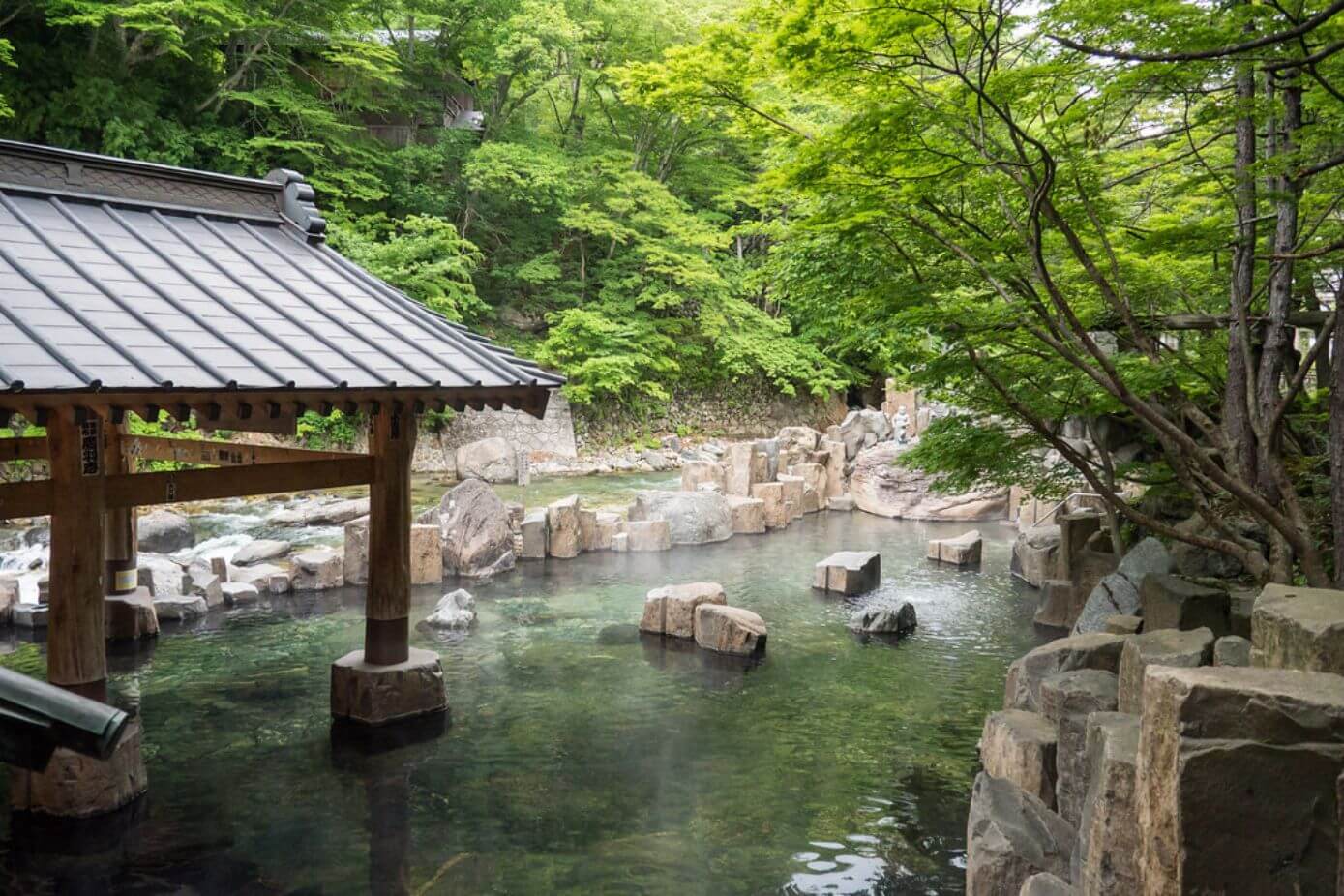
Many travelers are making this mistake when they are at an Onsen hot spring or Sento public bath. When heading into the hot spring area, don’t go directly from the changing room to the hot pool.
You need to take a shower first. You must thoroughly clean your hair, face and body with shampoo and soap before entering hot spring water.
Most of the time, bathing suits are not allowed (although some outdoor onsen require bathing suits).
You hair should be tied up to keep it out of the bath water, and please, do not swim in the onsen.
Don’t be loud in transports
Whether you’re talking directly to someone or using your phone, you need to avoid being too loud in transports. Many people commute long distances for work and have very little quiet time to sleep or decompress.
Japanese people use their phones for texting, emailing, gaming, listening to music or watching videos. You’ll quickly notice how quiet people are in public, especially on public transportation such as trains, subways and buses.
If ever you really need to speak on the phone on public transportation, keep your voice down and make your conversation as short as possible. Or simply get off the train at the next station.
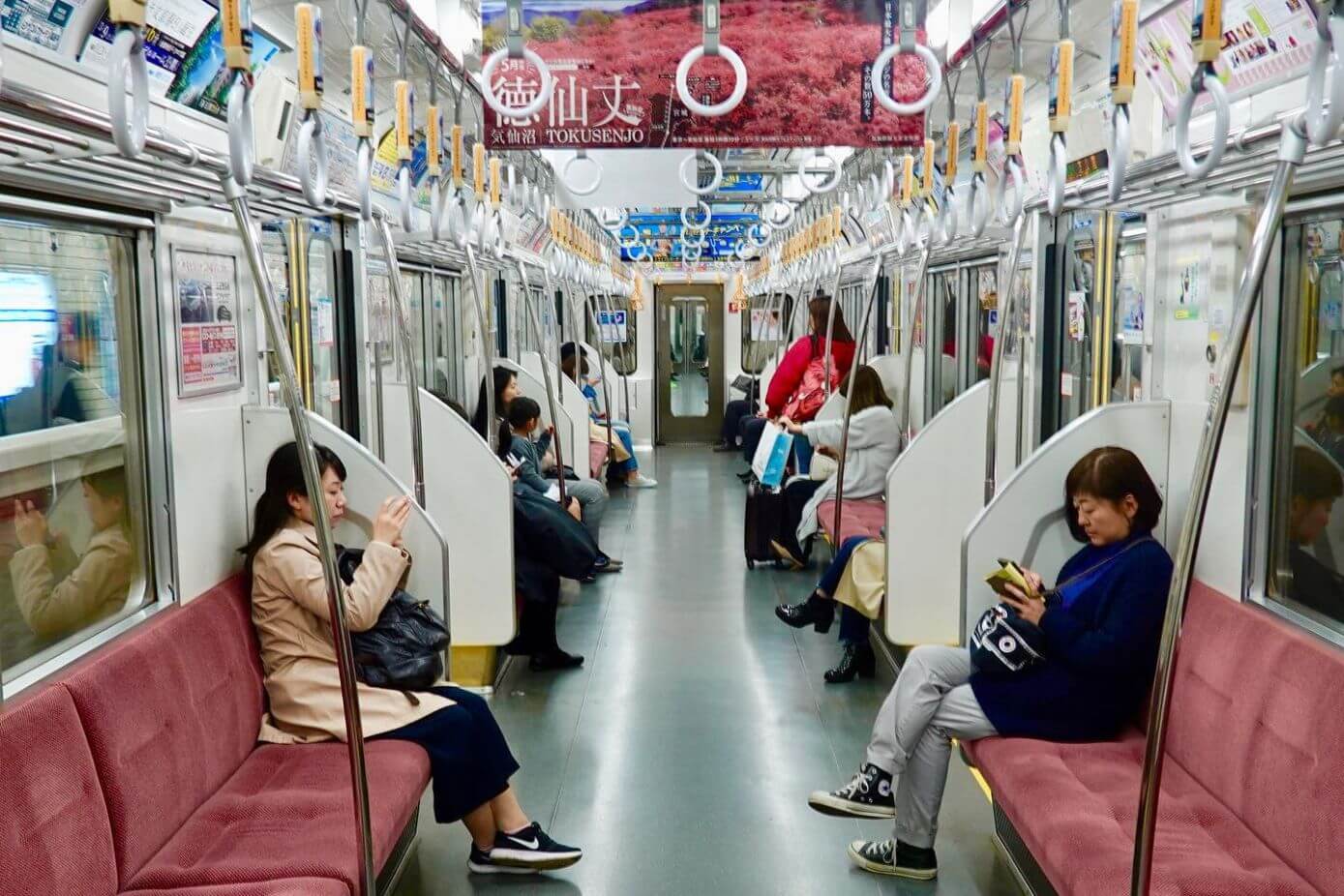
Don’t blow your nose in public
Blowing your nose in public in Japan is considered to be rude. You would think blowing your nose with a tissue is being well-mannered and would much rather be preferred to someone wiping their nose on their shirt or constantly sniffing.
Just find a bathroom or another private place to blow your nose or simply keep sniffing until you are alone and can blow your nose in private. That’s what most Japanese people do.
Don’t eat on the go
In Japan, you will almost never see someone eating in the street or in public transportation because people don’t generally eat or drink on the go.
People usually eat directly at the restaurant or buy fast food from street stands and eat it standing up. The drinks bought in the vending machines are also consumed immediately and the cans can be throw away directly.
You will quickly notice that there are a very limited number of trash cans in public. Japanese people usually carry their trash with them until they find a trash can or until they go back home.
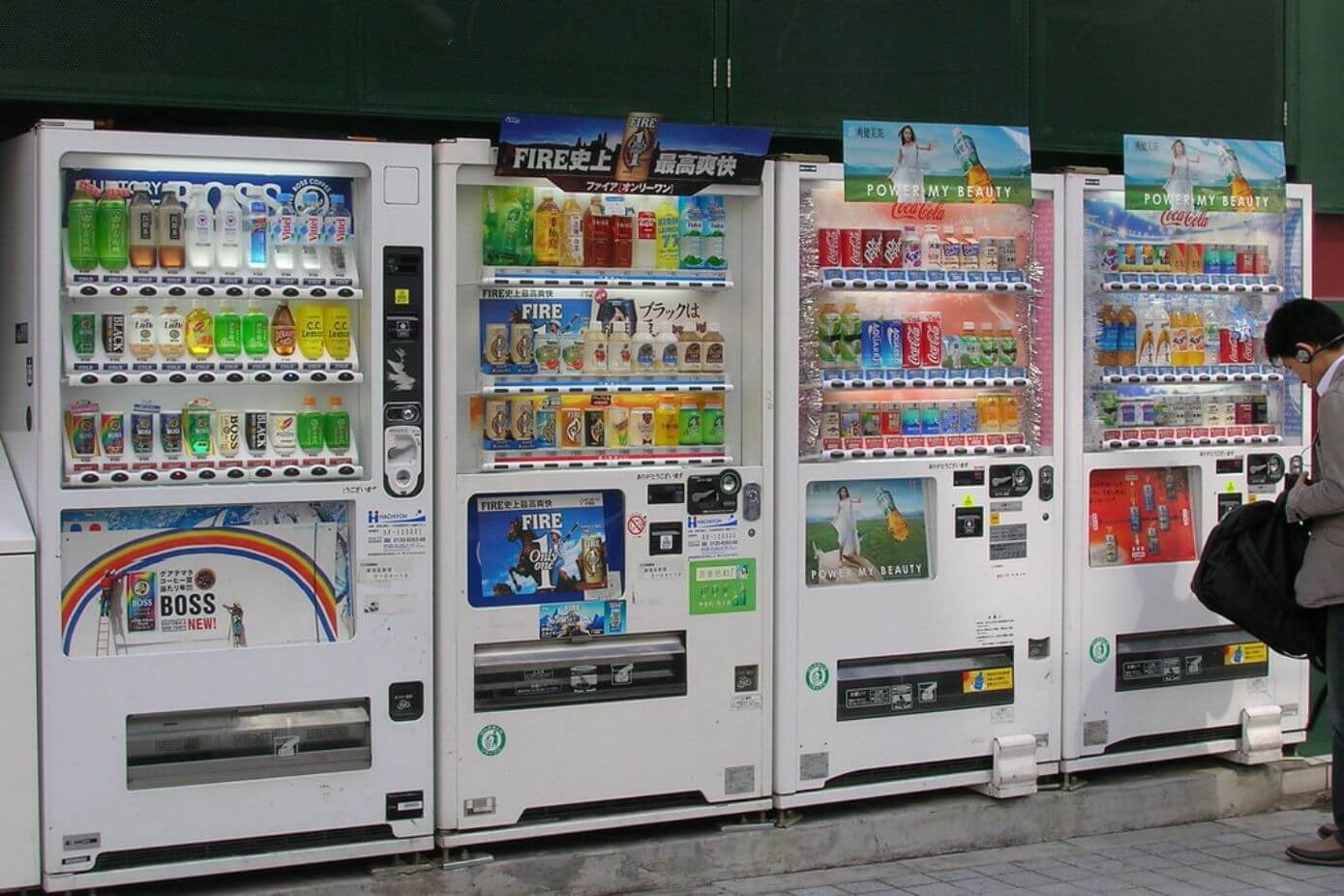
Don’t smoke on the street
In Japan, it is prohibited smoking on the streets. Sometimes you may find some Japanese people smoking while walking on the streets but it is illegal.
There are indoor smoking rooms or small outdoor areas where smoking is permitted. These are often located in large commercial buildings, near parks entrances or around train stations.
Don’t expect people to speak English
It is something that surprised me a lot when I first went to Tokyo especially. Even if many restaurants, shops and products names are written in English, there were so few people who spoke English. Sometimes it can be a hard time just ordering food at a restaurant. People speak very basic English. So speak slowly and use simple words. The best technique I can give is to point the photos displayed on the menu to be sure to be understood or use some basic japanese phrases.

